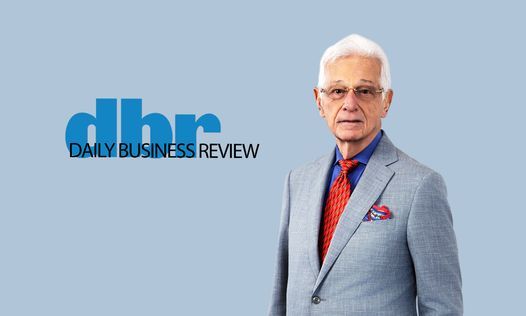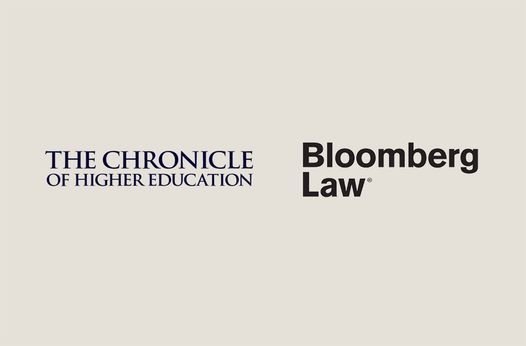Seventh Circuit Allows Law Firm to Dodge RICO Suit Based on Alleged Fraudulent Tax Advice
Lawyers for the Profession® Alert | 4 min read
Dec 9, 2019
Menzies v. Seyfarth Shaw LLP, No. 18-3232, 2019 U.S. App. LEXIS 33701 (7th Cir. Nov. 12, 2019)
Brief Summary
In a 2-1 decision, the Seventh Circuit held that the district court properly dismissed an executive's RICO claim against defendants—a lawyer, a law firm (Seyfarth Shaw LLP), and two financial services firms—for his underpayment of capital gains taxes, as well as penalties and interest, on sales of over $64 million in stock. The executive alleged he failed to report such sales as capital gains in his tax return due to a fraudulent tax shelter scheme peddled to him by the defendants. The preclusion under Section 1964(c) of the RICO statute did not act as a bar to the claim because the alleged tax fraud did not amount to actionable "securities fraud." However, plaintiff's RICO claim failed because he failed to establish the alleged fraud was part of a criminal enterprise. In short, the claim fell short on the statute's element requiring a pattern of racketeering. The state law claims advanced against the lawyer and law firm defendants were also found to be untimely. The court allowed the claims against the two remaining financial services defendants to proceed.
Complete Summary
Plaintiff, an insurance executive (Steven Menzies) sold over $64 million in his company's stock, but failed to report any capital gains on his 2006 federal income tax return for this sale. After an investigation, he settled the claims with the IRS in October 2013, paying over $10 million in back taxes, penalties, and interest. He alleged that the fraudulent tax shelter that caused his underpayment was a scheme pitched to him by the defendants, who claimed it had a greater than 50% chance of withstanding IRS scrutiny. The plaintiff advanced this contention in claims he brought under the Racketeer Influenced and Corrupt Organizations Act (RICO) and Illinois law—i.e., for fraudulent misrepresentation, conspiracy, joint enterprise liability, negligent misrepresentation, breach of fiduciary duty, and unjust enrichment. The district court dismissed all claims.
Not knowing that the tax strategy recommended by defendants reflected what the IRS would later deem to be an abusive tax shelter, plaintiff alleged "he agreed to go along with the scheme." He further "conducted a series of transactions that, through the substitution of various assets and the operation of multiple trusts, created an artificial tax loss used to offset the capital gains he realized upon later selling his stock."
On the threshold issue, the Seventh Circuit held fraud allegations premised on the tax consequences of a sale of securities rather than the sale of securities itself was too attenuated to constitute securities fraud under § 10(b) of the Securities and Exchange Act and SEC Rule 10b-5.
The Seventh Circuit held the statute's pattern-of-racketeering element was not satisfied by the plaintiff's alleged claims, which were dismissed after the district court allowed plaintiff over a year of discovery to develop his claims. Recognizing that "courts have labored mightily to articulate what the pattern element requires," the court concluded that plaintiff "failed to plead not only the particulars of how the defendants marketed the same or a similar tax shelter to other taxpayers, but also facts to support a finding that the alleged racketeering activity would continue. To conclude otherwise would allow an ordinary (albeit grave) claim of fraud to advance in the name of RICO - an outcome we have time and again cautioned should not occur. In so holding, we in no way question whether a fraudulent tax shelter scheme can violate RICO. The shortcoming here is one of pleading alone[.]"
In a dissent, Judge David F. Hamilton disagreed with the dismissal of the RICO claims because he believed a pattern of wrongdoing was sufficiently articulated by the pleading. "Plaintiff has alleged in detail how the defendants created an off-the-shelf tax-shelter scam—one that was easily replicable for other, similarly situated taxpayers facing substantial tax bills on large capital gains," Judge Hamilton wrote. "The defendants marketed the scam to plaintiff and others. They were positioned to keep the fraud going unless and until they were stopped. The majority errs by finding insufficient plaintiff's allegations of a 'pattern' of racketeering activity."
The opinion also held that Illinois' two-year statute of limitations for claims against attorneys (735 ILCS 5/13-214.3) barred the claims against the law firm and the attorney who allegedly misled plaintiff about the tax shelters. The court found that "[b]y its terms, the statute covers the claims against [the lawyer and law firm], as the second amended complaint plainly alleges that [the attorney] provided fraudulent legal advice and opinion letters, all of which fell within his role as [plaintiff's] counsel." The court concluded that the date of the IRS deficiency notice was the date the plaintiff's alleged claims against the firm and the attorney accrued. The court, however, reversed the dismissal of the claims against the two remaining financial services defendants, and remanded those claims.
Significance of Decision
This opinion highlights the difficulties in satisfying the pattern requirements of RICO claims against lawyers, especially in RICO cases premised on allegations of mail and wire fraud. It also reinforces the date of an IRS deficiency notice as being a well-accepted accrual date for purpose of the statute limitations for claims arising from faulty tax advice.
Featured Insights

Employment Law Observer
Dec 8, 2025
12 Days of California Labor and Employment: 2025 Year in Review

Press Release
Dec 4, 2025
Hinshaw Recognized by the Leadership Council for Legal Diversity as a 2025 Top Performer

Press Release
Nov 25, 2025
Hinshaw Legal Team Secures Summary Judgment in Gas Station Injury Case

Press Release
Nov 18, 2025
Hinshaw Releases the Third Edition of Duty to Defend: A Fifty-State Survey

In The News
Nov 13, 2025
A Profile on Neil Rollnick: After 57 Years in Practice, He Has No Plans to Retire

Press Release
Oct 22, 2025
Hinshaw & Culbertson LLP Launches New Website and Refreshed Brand







